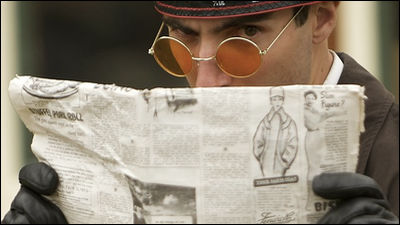A former spy and author explains, 'What do real spies think of James Bond?'

When imagining the image of a 'spy,' many people will think of
What Do Real Spies Think of James Bond? ‹ CrimeReads
https://crimerreads.com/what-do-real-spies-think-of-james-bond/

Katz has a 29-year career with the NSA and CIA, working in various positions as an intelligence officer, mainly dealing with technology issues, secret information and foreign policy. After retiring, he wrote novels starring spies, such as ' Red Widow ' and ' Red London ,' which have been highly praised for their realistic and high-quality settings. As a result, Katz has spoken about Bond, mixing his admiration and jealousy for the hugely popular character from his experience as an intelligence officer and his standpoint as a writer, saying, 'I don't hate Bond, but I'd say it's fair to say I have a love-hate relationship with him.'


Katsu spoke about his thoughts on writing 'The Spy Who Vanished' and his examination of 'How would Bond be evaluated as a spy?' According to Katsu, the spies depicted in the movies are the polar opposite of good intelligence work. The main job of a real operations officer is to persuade foreigners who have access to the secrets they need to reveal those secrets. The weapons used to get people to reveal secrets are usually money or ideology, and spies are not assassins or saboteurs with a license to kill.
Another big difference between Bond and real-life spies is that Bond works alone. He has a female companion and accomplices who provide him with tools and information, but he does most of his work alone. Katz points out that real-life espionage is more about teamwork, and typically relies on a mix of different skills and expertise.
There have been comments from current employees about Bond's unrealistic espionage.
I see #MI6 's commitment to being an employer who offers flexible working & welcomes #diversity has got the tabloid treatment this morning. #ForgetJamesBond #SecretlyJustLikeYou https://t.co/I4toll4vd7 https://t.co/MlLfTwtTMu . https://t.co/Cc8VzcarEE .
— Richard Moore (@ChiefMI6) January 31, 2021
Additionally, Amy Zegart, a senior fellow at Stanford University's Center for International Studies, cites in her book Spies, Lies, and Algorithms examples of congressional aides and military commanders admitting to using 'spy entertainment' like 24 to develop operational plans.

'Just ask real-world experts. We may not be as good looking as you would expect from a tuxedoed glamorist, but as a whole, we are more thoughtful, law-abiding and professional than the spies on the other side of the screen,' Katz said.
Related Posts:
in Note, Posted by log1e_dh







